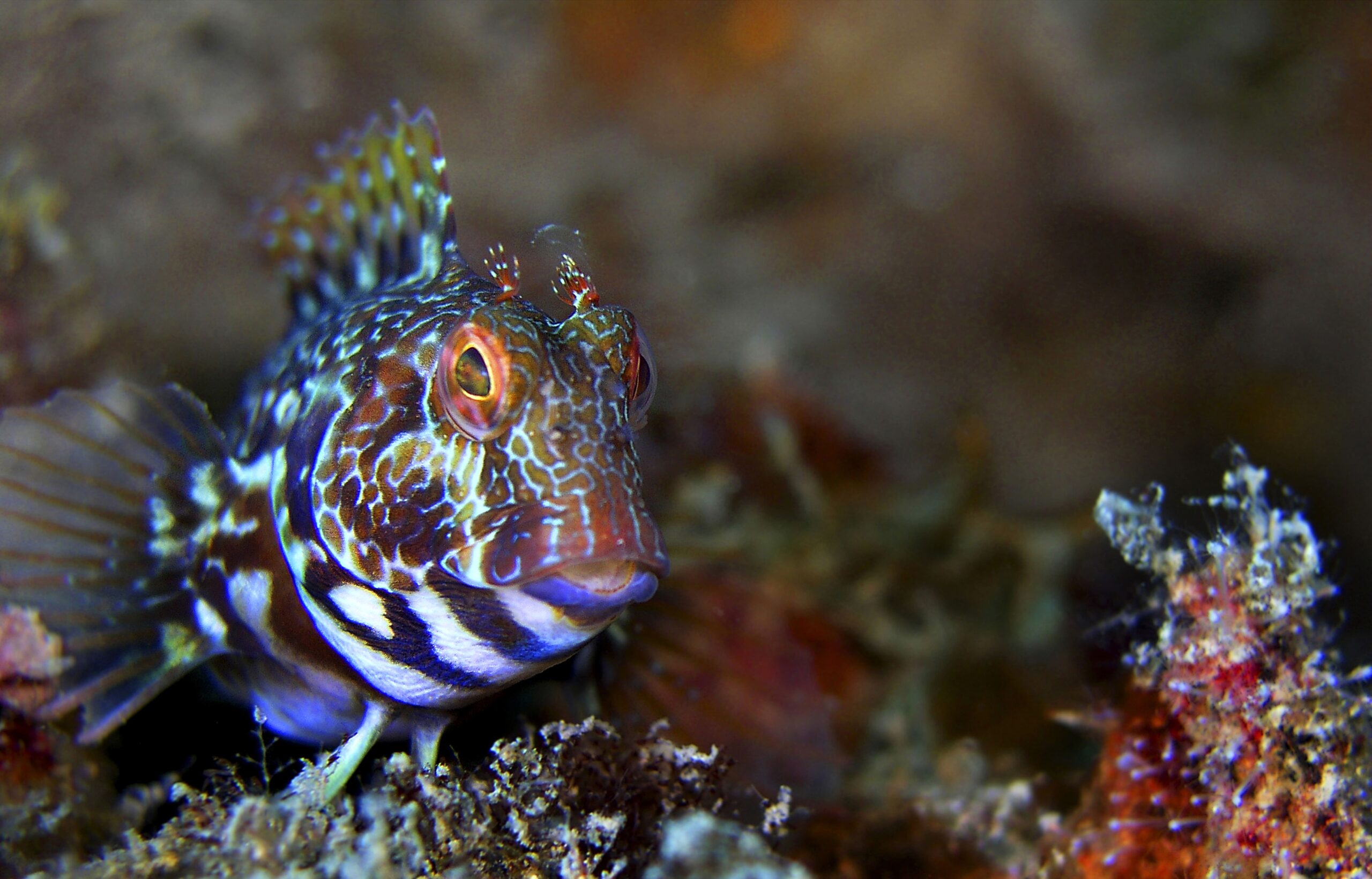
Lawnmower Blenny Care Guide
Glossary:
- Care Guide & Requirements
- Reef Safe
- Prices
- Food & Diet
- Facts
- FAQs
- Tank Mates & Environment
The Lawnmower Blenny, or Salarias fasciatus, is among the most popular Blennies to keep in a saltwater tank. One of the main reasons is its ability to help keep the tank clean by consuming algae.
The following guide will detail how you can care for the Lawnmower Blenny in your aquarium.
Is the Lawnmower Blenny reef safe?
Yes, the Lawnmower Blenny is a reef-safe fish. You don’t have to worry about this particular Blenny going after your coral, as it sticks to a herbivorous diet of algae. You can also keep this fish with plenty of other invertebrates, including shrimp, crabs, and snails.
However, this fish may begin to nip at coral if you don’t feed it enough, but a well-fed fish will generally refrain from attacking your coral.
Lawnmower Blenny food and diet
You should feed the Lawnmower Blenny certain types of algae-based foods that help feed herbivores. For instance, you can feed the fish spirulina-rich gels or pellets. Other types of food that you can give this fish include nori seaweed, spinach, and peas.
While this fish will consume algae to a certain extent, don’t rely on this fish for cleanup, as your Lawnmower Blenny will likely prefer to eat more hearty foods in addition to algae.
What other fish are the best tank mates for the Lawnmower Blenny?
Healthy Lawnmower Blennies tend to be peaceful and won’t go after other fish. That said, there are some fish and invertebrates that are better tank mates than others.
Some Lawnmower Blennies may begin to attack coral and shrimp without proper feeding and care. In addition, they may become aggressive toward seahorses, pipefish, and other lagoon species. Also, avoid keeping more than one Lawnmower Blenny or another Blenny in your tank, unless it’s a male and female pairing.
However, your Blenny is likely to get along with many other types of fish.
Lawnmower Blenny price
Similar to other Blennies, you won’t normally need to spend too much for a Lawnmower Blenny. This fish is highly affordable, but you may find them at higher prices. In most cases, you can expect to pay around $20 to $35 for a Lawnmower Blenny, but some fish of this species may go for as much as $90+.
Lawnmower Blenny facts
The following are some interesting facts about the Lawnmower Blenny that you might not have known:
- This fish goes by a plethora of names, including Sailfin Blenny, Jeweled Blenny, Jeweled Rock Skipper, and Algae Blenny.
- You can find this fish on the coasts of Africa and Oceania.
- The Lawnmower Blenny has the ability to change color depending on its mood and surrounding environment.
Lawnmower Blenny FAQs
Are Lawnmower Blennies easy to keep?
Lawnmower Blennies are generally easy to keep if you provide them with plenty of algae to feed on and other food sources. A well-fed Lawnmower Blenny in a clean environment likely won’t lead to any challenges when keeping this species.
How many Lawnmower Blennies can live together?
Like other Blennies, the Lawnmower Blenny doesn’t tend to enjoy the company of other Blennies. If you plan on keeping a Lawnmower Blenny, it’s best to keep one if you want to maintain a peaceful environment, unless you have a male and a female in the tank.
What are the tank requirements for the Lawnmower Blenny?
When keeping a Lawnmower Blenny in your tank, there are certain conditions to maintain. Specifically, you should keep the Lawnmower Blenny in a tank that’s at least 30 gallons, which will give the fish plenty of space to swim and forage. You’ll also want to maintain a temperature of around 72 to 78 degrees Fahrenheit, with salinity levels of 1.020 to 1.025. Additionally, pH levels should be around eight to 8.4.
Where to buy Lawnmower Blenny?
You can buy Lawnmower Blennies from many online stores, including:
The Lawnmower Blenny is a great addition to your tank if you’re looking for a peaceful, easy-to-maintain, and potentially helpful fish. With the right care, this fish will be compatible with other species of fish and invertebrates in your aquarium.
